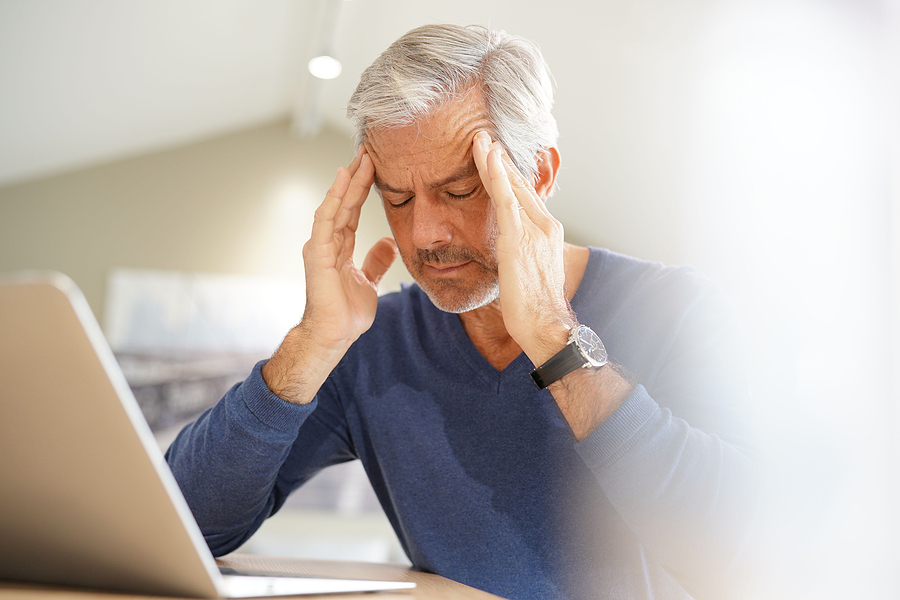What type of headache do you have?
The key to overcoming frequent headaches is understanding what’s causing them. Neuroscientist Amanda Ellison helps us get to the root of the problem
We tend not to think about what’s causing headaches – we take painkillers and accept them. Often different types of headache are lumped in together as migraines. But they have different causes, and will keep recurring unless you change your behaviour.
What triggers them?
Vasodilation (the widening of blood vessels) in your head is what makes a headache manifest. This is because your brain is your most vital organ and your body is sending you a warning sign that your blood vessels are dilating. If this goes past a certain point, it could be dangerous and cause a haemorrhage. Under stress, we’re likely to eat poorly and drink alcohol, which can further contribute to headaches.
What are the different types of headache?

Sinus headaches
The signs: Pain that starts in your face and gets worse when you lean forward. You may also get a stuffy or runny nose. Sinus headaches happen due to blockages in your sinuses – four hollow cavities in the bones of your face.
What’s going on? You’ll get pain related to whichever sinus is blocked. Sometimes blockages can be due to allergies or after an infection. The result is that blood floods the area with immune system chemicals, including histamines, causing vasodilation. You can take decongestants, painkillers such as paracetamol or ibuprofen, or anti-inflammatories. Some people use menthol-based products inside their nose – the menthol activates the nose’s cool receptors, so your brain thinks it’s less hot and takes its foot off the inflammatory pedal.
Tension headaches
The signs: A tight band of pain across your forehead – your neck and shoulders may also feel tight, as though there’s a weight on your head.
What’s going on? These are the most common types of headache and can be a result of emotional or physical stress. Physical stressors include being hunched up over your laptop or on the sofa. If you’re under emotional stress, you’ll hold your body in a different way, too. Stress chemicals can prime your muscles to act, but you never expend this energy. Either way, your autonomic nervous system and endocrine system are both at work, and inflammation is triggered. Lots more glucose and oxygen are sent to your brain, resulting in vasodilation.
Cluster headaches
The signs: A very severe headache on one side, with a bloodshot eye and running nose. One side of the face may droop, too.
What’s going on? These seem to be connected to the hypothalamus – this part of the brain governs the endocrine system and the autonomic nervous system. The suprachiasmatic nucleus (SCN) in the hypothalamus is highly influenced by the light that comes through your eyes, and controls your body clock through the action of melatonin (which helps you sleep) and serotonin (the happy hormone). This may play a role in cluster headaches as they often happen at the same time of year. Levels of the hormone hypocretin, which regulates cravings, are low in people with cluster headaches. This is one possible reason why people who get them are often heavy smokers. Raising serotonin through pills or injections early in the episode can stop them.
Migraine
The signs: Migraines often start with yawning, blurred vision and thirst as your brain tries to regulate hormone imbalances, followed sometimes by an aura or visual distortions, then pain, possibly with nausea and light sensitivity, before the final phase, where you feel ‘out of it’ as your brain’s neurotransmitters move back to where they should be.
What’s going on? Migraines are caused by activity in your brain. You get a wave of excitation, sometimes in response to a stimulus such as flashing lights. This is quickly followed by a wave of no activity at all. This pattern of activity causes potassium to get trapped on the outside of the brain cells. Your brain starts to think it’s starving of nutrients so it kicks into gear and leads to massive vasodilation to compensate, resulting in pain.
5 ways to prevent headaches
The good news? Whatever your headache type, these key steps are known to help:
1. Stay hydrated
If you’re not taking in more water than you’re losing, through sweating and excretion, your kidneys will take it from your organs, including your brain. As your brain shrinks, it pulls on its membrane covering, and that can cause pain.
2. Manage your stress levels
This helps you avoid both the physical and emotional causes of headache. Walking, yoga and taking time to relax can all help.
3. Good posture
This helps prevent the muscle tension that can trigger headaches.
4. Be happy
Find ways to bring joy into your life. Serotonin blocks pain signals from reaching your brain.
5. Eat regularly
Research suggests keeping blood sugar levels up can help prevent migraines.
Find more great health, lifestyle and fitness content in and at healthy-magazine.co.uk
Written by Charlotte Haigh
ADVERTORIAL
Latest posts by healthy Magazine (see all)
- The five best easy moves to stay fit at any age - June 28, 2021
- How to have glowing skin in your 50s - June 1, 2021
- Should you be eating more plant-based? - May 5, 2021
- Four things that could be causing your thinning hair - March 29, 2021
- What type of headache do you have? - March 1, 2021























